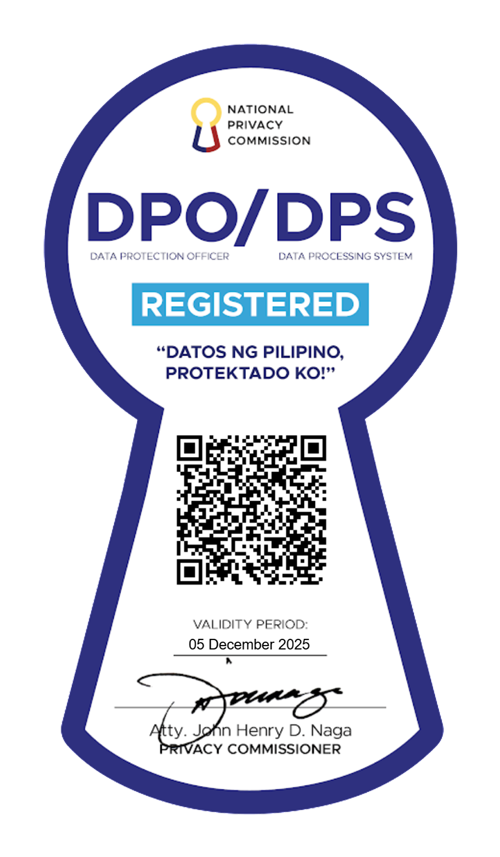BACHELOR OF SCIENCE IN ENTREPRENEURSHIP
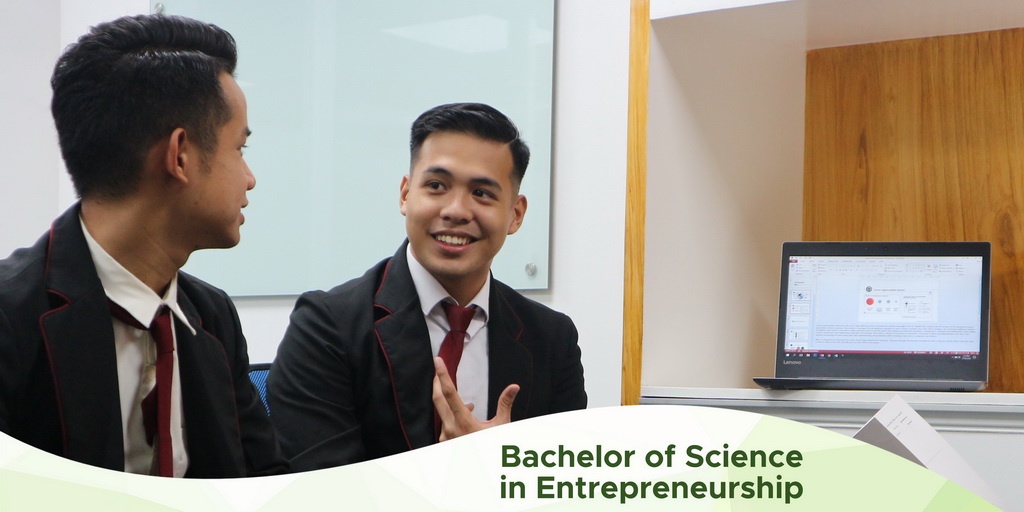
The Bachelor of Science on Entrepreneurship (BSE) program aims to produce entrepreneurs with an edge. The program highlights creativity, innovation, and inspired passion - replete with opportunities and activities that hone collaborative skills that lead to creation and development of innovative, suitable ideas to establish new business concepts.
Every Entrepreneur student is envisioned to be globally competitive, with business management skills. One is ensured of entrepreneurial learning through artistic expression, peer-to-peer learning, and avenues for incubation of ideas, and technical knowledge on writing effective business plans, conducting research, understanding the power of brand strategies, exploring trends to find the right audience for the business.
As recent statistics show, a large number of graduates in higher education institutions come from the business and management discipline. If a higher percentage of students would pursue entrepreneurship studies and eventually establish their own business, even while in school, it will benefit the economic development of the country.
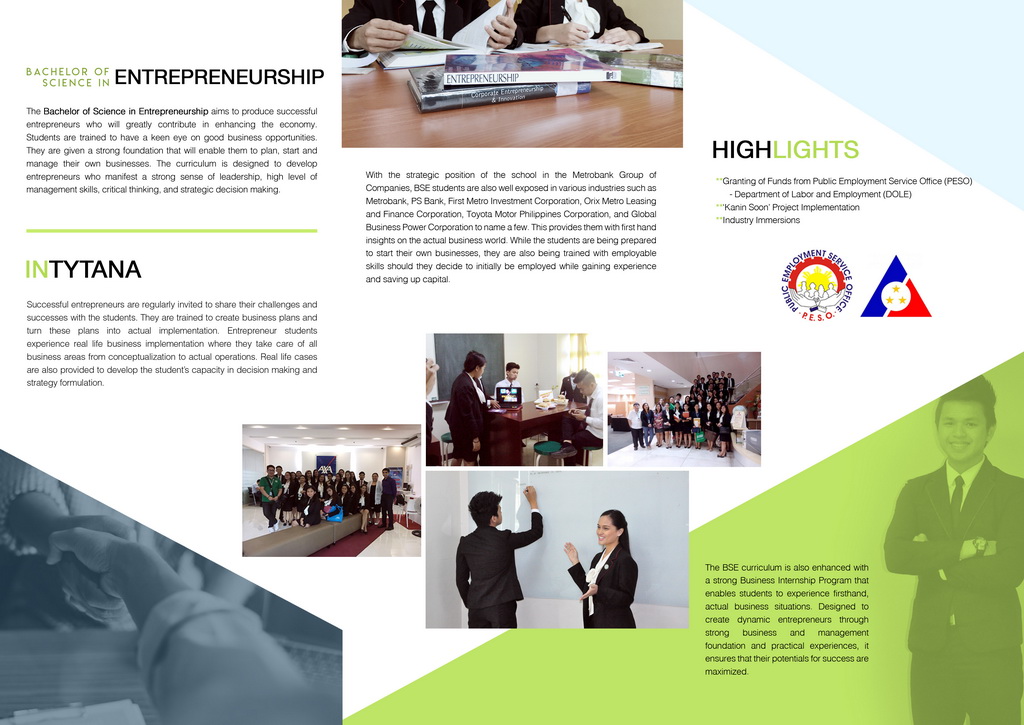
How To Start A Candle Business: Transform Your Interest Into A Successful Brand
Opening a candle business may be an excellent opportunity for someone artistic and talented in design-making. This is a chance to combine skills and talents creatively and profitably. Starting as a part-time business may be an option, but can go into a full-time business once it expands and thrives.
On April 14, 2023, Wilfredo Baula II, BS Entrepreneur IV student and owner of Easy Candle.i.o, provided Divine Light Academy ABM Grade 12 students an overview on creating scented candles and putting up a business.
Homemade candles have become an essential part of interior design style. The use of it has increased dramatically in recent years for style, mood setting, relaxation, and therapy.
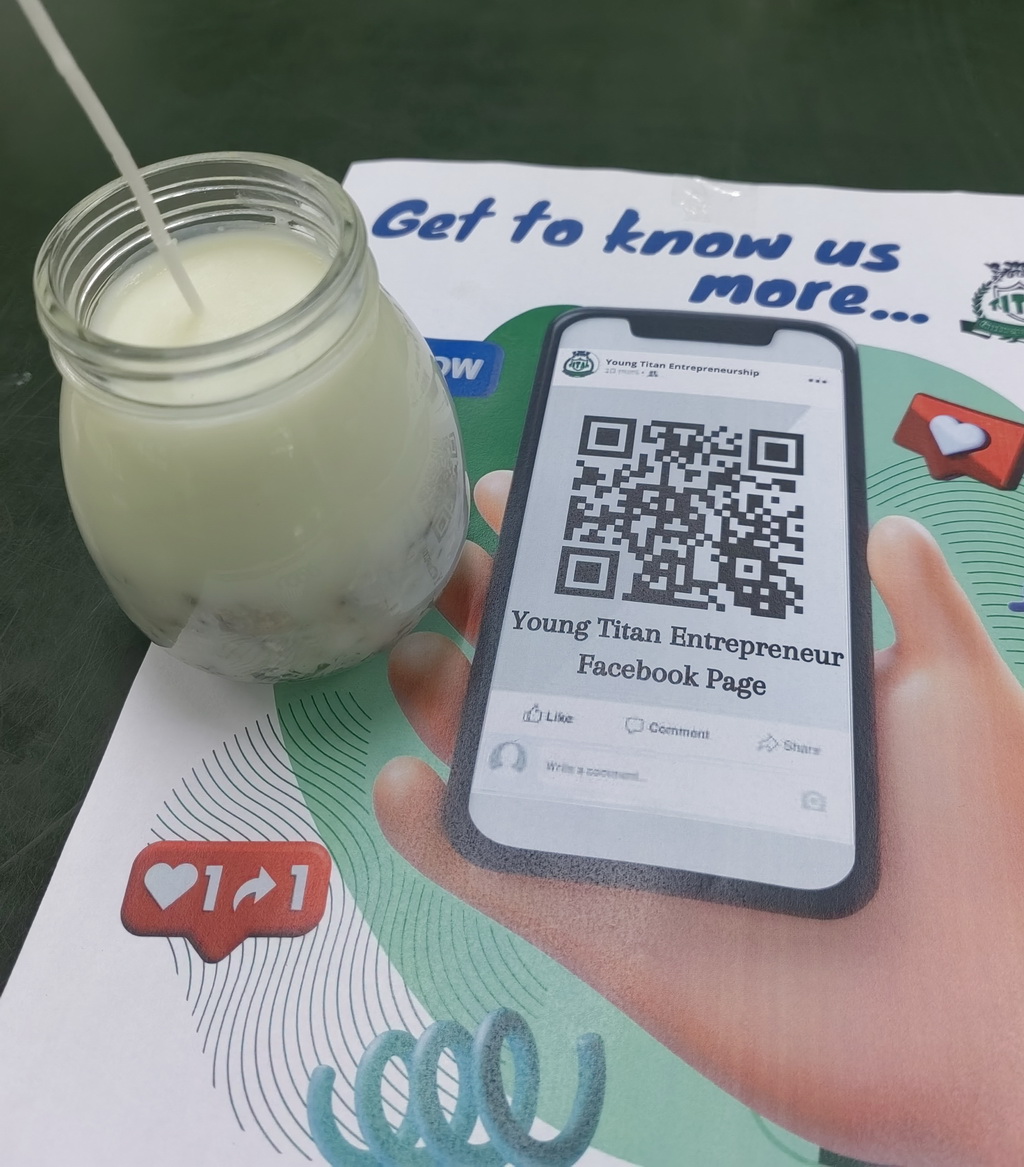
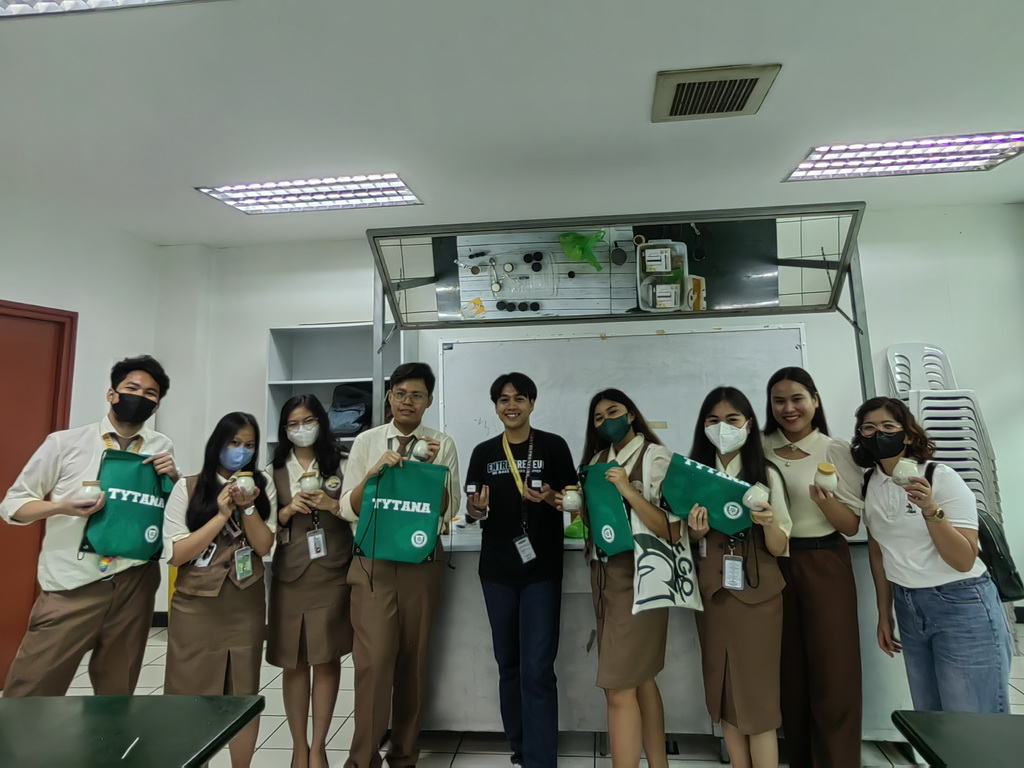


Starting a small business is an exciting time. But let`s face it, starting a business can be costly. Few student entrepreneurs have the cash on hand to start their plans without outside help. If you're planning to start your small business you can seek for funding from seed investors.
Under the EARN WHILE YOUR LEARN PROGRAM of the BACHELOR OF SCIENCE IN ENTREPRENEURSHIP, the college lends a minimum startup capital for your small business idea. With the mentorship and assistance from the college in preparing your viable business plan for your start-up, you will you know how much funding assistance you need, and what it will be used for. This is a bit of a process to take, but being prepared is always the best route.
Grand Caravan
The Grand Entrepreneurship Caravan is an activity that aims to inspire senior high school students to develop passion for creativity and entrepreneurial ventures, and understand how the role of SMEs and firms play in the modern economy. Spearheaded by the BS Entrepreneurship students, the Caravan tones with the BS Entrepreneurship program`s brand identity of 'creative entrepreneurship' that focuses on building MSMEs, maximizing local resources for international market.
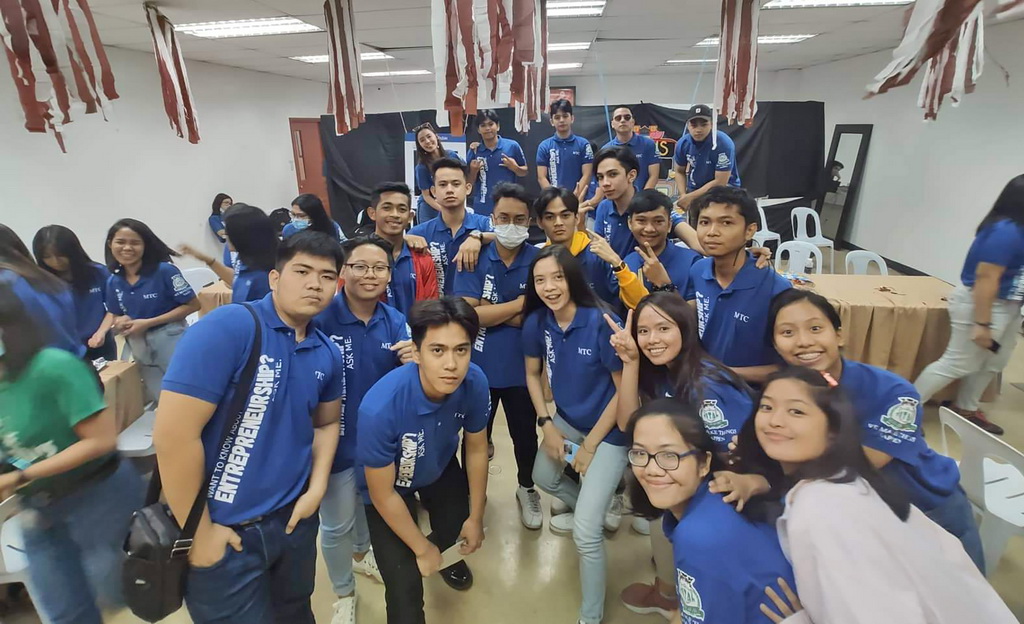
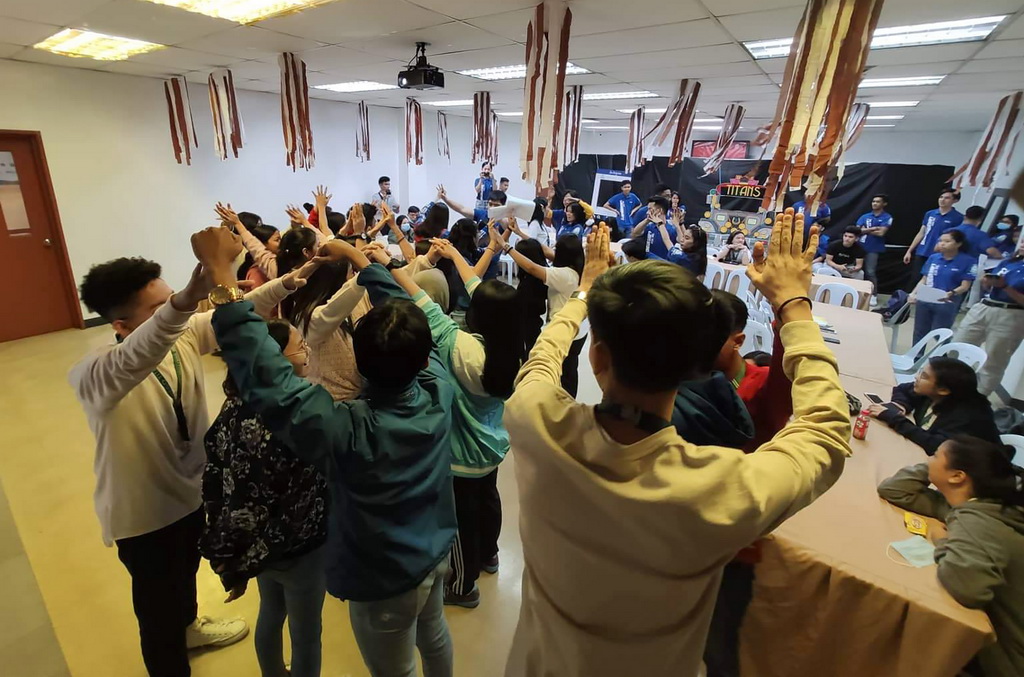
The Caravan is replete with events and activities which specifically aim to: a) motivate the senior high school students, particularly ABM and GAS students to develop a keen interest in entrepreneurship and the right attitude; b) help these students build a social network of entrepreneurs around the country; c) lay the seeds of entrepreneurship among the youth and encourage them to move forward with their new innovative ideas.
The events may be recognized as an introduction for students who are inclined with taking up the course. The workshops cover 'Kabuhayang Entrep Workshops on Small Businesses' to provide insights on creative entrepreneurship as a fertile ground of startup ecosystem.
The purpose of the caravan is to lay out a platform for senior high school students who wish to develop their career as entrepreneurs.
Accessory-Making Workshop
The launch of the Grand Caravan brought together about 40 senior high school students from the ABM strand. The aim was to share with them the experience of turning their hobbies into business, one of which is accessory-making.
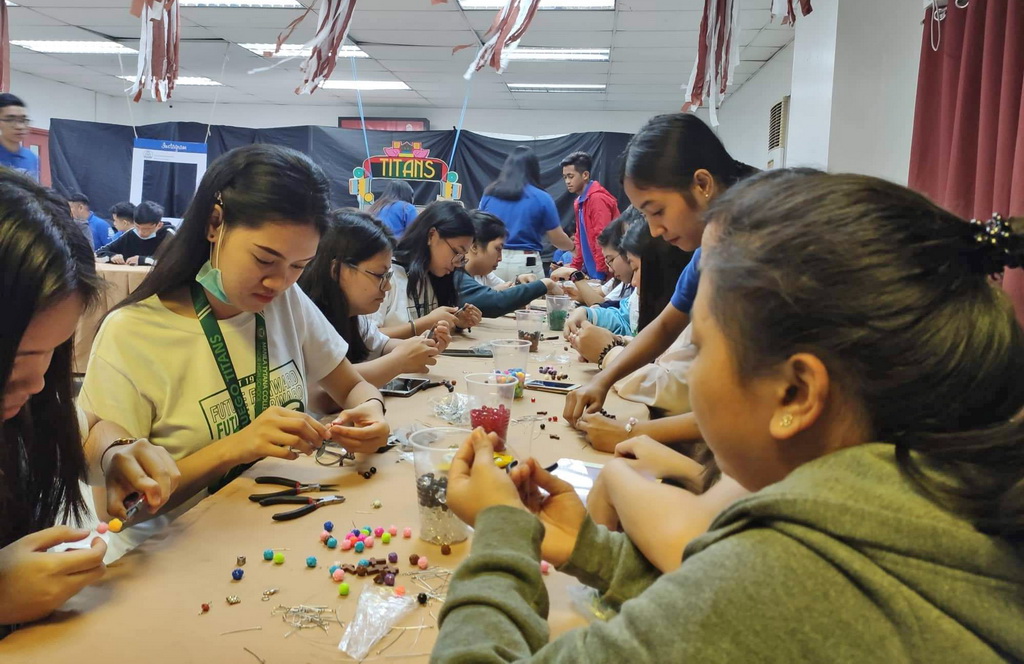
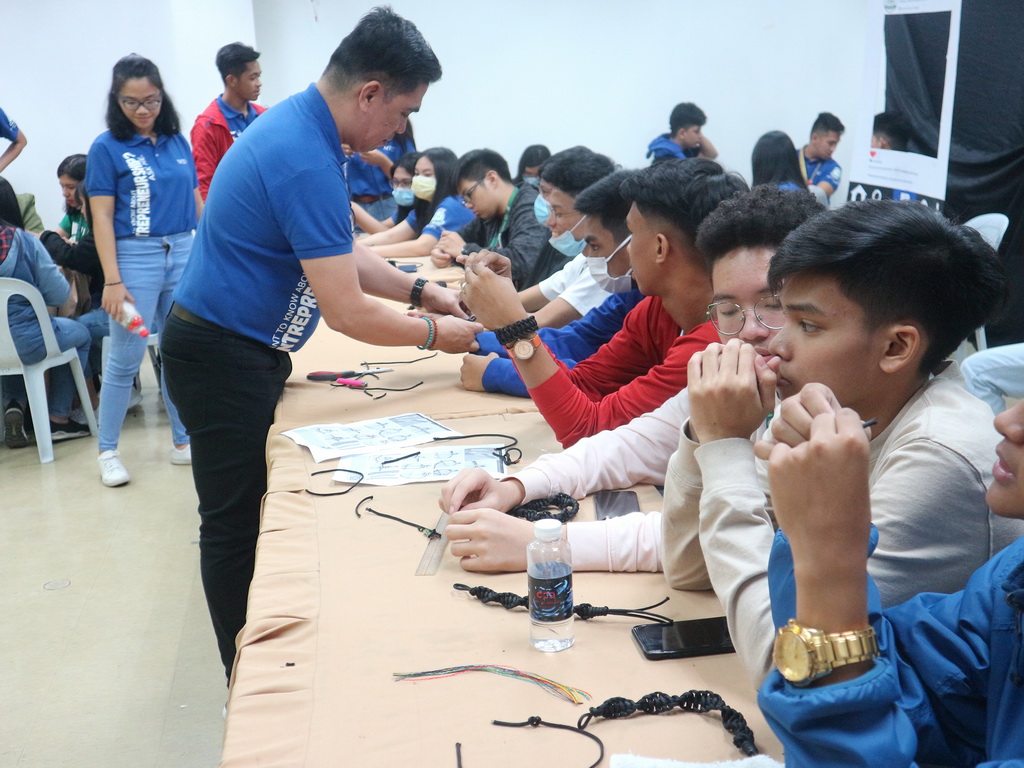
Accessory-making is a viable low investment business for hands-on creatives. This often starts as a hobby, but people with entrepreneurial spirit and flair for selling often switch from hobbyists to creative entrepreneurs. The market is hungry for originality and quality. They value utility combined with the entrepreneur`s insights and imagination.
Chocolate-Molding Workshop

One may be surprised to know that a comfort food can turn into a huge money-making venture. Last February 14, 2020, the Young Titan Entrepreneurs invited about 40 senior high school students to a chocolate-molding workshop. As part of the Grand Entrepreneurship Caravan, the workshop aims to inspire students to start their business from home, one that allows convenience and flexibility as compared to renting a space.
`Sa kakanin, pag-angat kayang-kaya natin`: A Sweeter Way to Financial Sustainability
by Prof. Gil Kelly Garcia, Program Head, BS Entrepreneurship
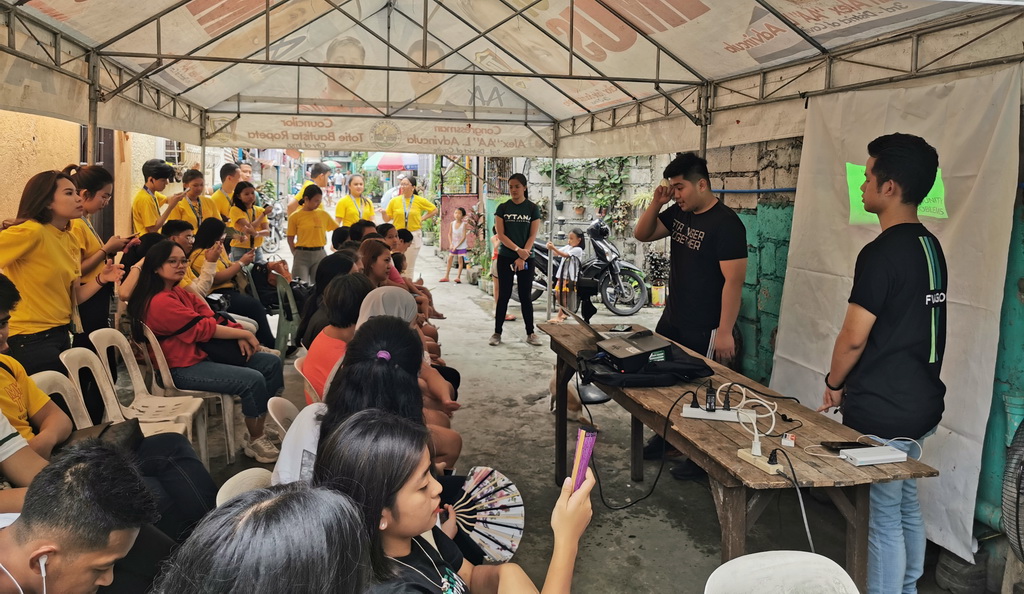
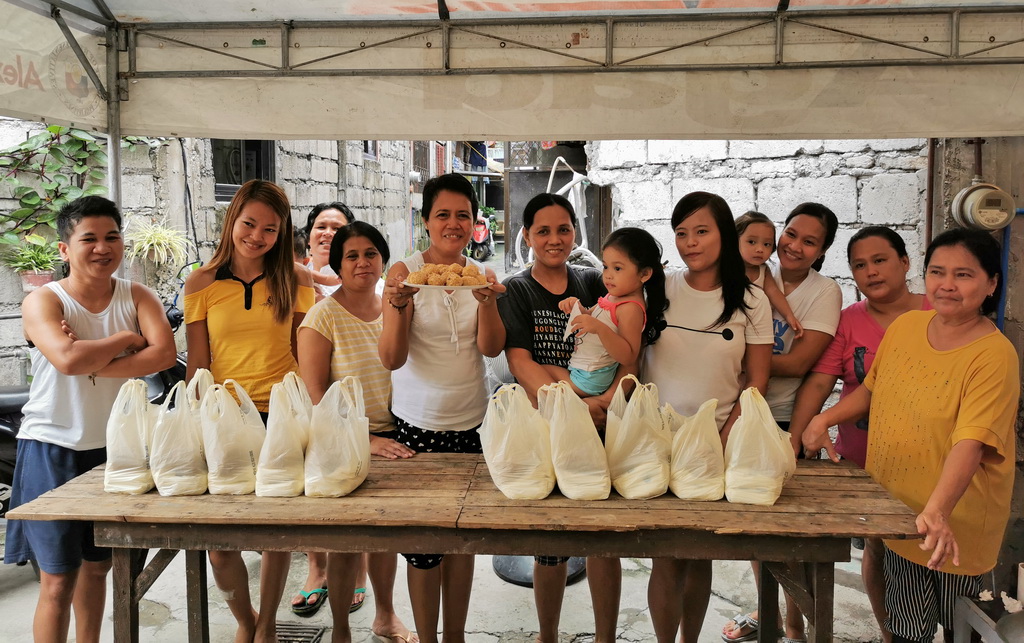
Eager to share what they learned from school, the YTE worked on teaching the participants the basics on how to start their Kakanin Business while JMA shared simple marketing and promotion ideas and worked on the markets for the products.
To kick off, the livelihood program provided a lecture and hands-on demonstration of Masi making, a native delicacy of Cebu. Just like the sweet story of Nanay Elena, the program hopes to provide affordable and sustainable projects that enable residents to augment their daily income. It is easy to the pocket and resources are readily available. It also hopes to increase the beneficiaries' control of their resources, build reliable and fair access to market and empower them through increasing the skills, knowledge and resources they need.
This community immersion is a good step for business students to start their own business while practicing social responsibility as a way of life. As we are entering the Age of Responsibility or CSR 2.0, the `Sa Kakanin, Pag-angat Kayang-kaya Natin` livelihood series program, hopes to make the business students be more aware of social issues and develop more projects with economic capability to make a real and lasting impact to the community.
Every Entrepreneur student is envisioned to be globally competitive, with business management skills. One is ensured of entrepreneurial learning through artistic expression, peer-to-peer learning, and avenues for incubation of ideas, and technical knowledge on writing effective business plans, conducting research, understanding the power of brand strategies, exploring trends to find the right audience for the business.
As recent statistics show, a large number of graduates in higher education institutions come from the business and management discipline. If a higher percentage of students would pursue entrepreneurship studies and eventually establish their own business, even while in school, it will benefit the economic development of the country.

How To Start A Candle Business: Transform Your Interest Into A Successful Brand
Opening a candle business may be an excellent opportunity for someone artistic and talented in design-making. This is a chance to combine skills and talents creatively and profitably. Starting as a part-time business may be an option, but can go into a full-time business once it expands and thrives.
On April 14, 2023, Wilfredo Baula II, BS Entrepreneur IV student and owner of Easy Candle.i.o, provided Divine Light Academy ABM Grade 12 students an overview on creating scented candles and putting up a business.
Homemade candles have become an essential part of interior design style. The use of it has increased dramatically in recent years for style, mood setting, relaxation, and therapy.




Starting a small business is an exciting time. But let`s face it, starting a business can be costly. Few student entrepreneurs have the cash on hand to start their plans without outside help. If you're planning to start your small business you can seek for funding from seed investors.
Under the EARN WHILE YOUR LEARN PROGRAM of the BACHELOR OF SCIENCE IN ENTREPRENEURSHIP, the college lends a minimum startup capital for your small business idea. With the mentorship and assistance from the college in preparing your viable business plan for your start-up, you will you know how much funding assistance you need, and what it will be used for. This is a bit of a process to take, but being prepared is always the best route.
Grand Caravan
The Grand Entrepreneurship Caravan is an activity that aims to inspire senior high school students to develop passion for creativity and entrepreneurial ventures, and understand how the role of SMEs and firms play in the modern economy. Spearheaded by the BS Entrepreneurship students, the Caravan tones with the BS Entrepreneurship program`s brand identity of 'creative entrepreneurship' that focuses on building MSMEs, maximizing local resources for international market.


The Caravan is replete with events and activities which specifically aim to: a) motivate the senior high school students, particularly ABM and GAS students to develop a keen interest in entrepreneurship and the right attitude; b) help these students build a social network of entrepreneurs around the country; c) lay the seeds of entrepreneurship among the youth and encourage them to move forward with their new innovative ideas.
The events may be recognized as an introduction for students who are inclined with taking up the course. The workshops cover 'Kabuhayang Entrep Workshops on Small Businesses' to provide insights on creative entrepreneurship as a fertile ground of startup ecosystem.
The purpose of the caravan is to lay out a platform for senior high school students who wish to develop their career as entrepreneurs.
Accessory-Making Workshop
The launch of the Grand Caravan brought together about 40 senior high school students from the ABM strand. The aim was to share with them the experience of turning their hobbies into business, one of which is accessory-making.


Accessory-making is a viable low investment business for hands-on creatives. This often starts as a hobby, but people with entrepreneurial spirit and flair for selling often switch from hobbyists to creative entrepreneurs. The market is hungry for originality and quality. They value utility combined with the entrepreneur`s insights and imagination.
Chocolate-Molding Workshop

One may be surprised to know that a comfort food can turn into a huge money-making venture. Last February 14, 2020, the Young Titan Entrepreneurs invited about 40 senior high school students to a chocolate-molding workshop. As part of the Grand Entrepreneurship Caravan, the workshop aims to inspire students to start their business from home, one that allows convenience and flexibility as compared to renting a space.
`Sa kakanin, pag-angat kayang-kaya natin`: A Sweeter Way to Financial Sustainability
by Prof. Gil Kelly Garcia, Program Head, BS Entrepreneurship


Eager to share what they learned from school, the YTE worked on teaching the participants the basics on how to start their Kakanin Business while JMA shared simple marketing and promotion ideas and worked on the markets for the products.
To kick off, the livelihood program provided a lecture and hands-on demonstration of Masi making, a native delicacy of Cebu. Just like the sweet story of Nanay Elena, the program hopes to provide affordable and sustainable projects that enable residents to augment their daily income. It is easy to the pocket and resources are readily available. It also hopes to increase the beneficiaries' control of their resources, build reliable and fair access to market and empower them through increasing the skills, knowledge and resources they need.
This community immersion is a good step for business students to start their own business while practicing social responsibility as a way of life. As we are entering the Age of Responsibility or CSR 2.0, the `Sa Kakanin, Pag-angat Kayang-kaya Natin` livelihood series program, hopes to make the business students be more aware of social issues and develop more projects with economic capability to make a real and lasting impact to the community.

